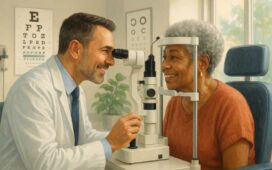Your skin is your body’s largest organ — and often the first to show signs of both internal health issues and external damage. Yet despite its visibility and importance, skin health is often overlooked in adult preventive care. While regular physicals and dental cleanings are a given for most, skin screenings tend to be an afterthought — until something goes wrong.
Whether you’re concerned about sun exposure, suspicious moles, or simply want to stay on top of your health, routine skin evaluations can be life-saving. Early detection and proactive care are key to treating many common — and potentially serious — skin conditions.
Here are the essential skin screenings every adult should schedule to keep their skin healthy, radiant, and protected for years to come.
1. Annual Full-Body Skin Exam
A full-body skin exam is one of the most critical screenings you can schedule — and it should become part of your annual wellness routine. During this exam, a board-certified dermatologist carefully examines your entire skin surface, from your scalp and face to your arms, back, legs, and even areas like the soles of your feet and under your nails.
Why it matters:
Skin cancer is the most common cancer in the United States, and early detection dramatically increases the chances of successful treatment. A full-body screening can help identify:
- Basal cell carcinoma (slow-growing but locally invasive)
- Squamous cell carcinoma (can spread if untreated)
- Melanoma (the deadliest form of skin cancer)
- Precancerous lesions such as actinic keratoses
Even if you don’t spend much time in the sun or have a darker skin tone, you’re still at risk. A yearly visit to a dermatology clinic ensures that anything unusual is caught early — often before you even notice it.
2. Mole Mapping and Monitoring
Moles are common, but some can develop into melanoma over time. If you have many moles, large moles, or a personal/family history of skin cancer, mole mapping is an essential service. This involves high-resolution photographs of your skin and moles taken at regular intervals to detect subtle changes over time.
Why it matters:
Changes in shape, size, color, or border — even if they’re slight — could be early warning signs of melanoma. Automated mole mapping helps dermatologists track these changes objectively and catch potential problems early.
Who should consider it:
- Anyone with more than 50 moles
- Individuals with atypical (dysplastic) nevi
- Those with a personal or family history of melanoma
3. Skin Checks for Acne, Rosacea, and Chronic Conditions
If you’ve struggled with acne, rosacea, eczema, or psoriasis for years, it may be time for a comprehensive dermatological evaluation. These conditions often evolve with age and can be aggravated by stress, hormones, diet, and environmental factors. An annual or biannual check-up helps ensure your treatment plan is still effective — or allows for adjustment as needed.
Why it matters:
Chronic skin conditions can lead to long-term inflammation, discomfort, and even scarring if not managed properly. A skin check isn’t just about treatment — it’s also a chance to get ahead of flare-ups and improve your overall quality of life.
4. Screenings for Nail and Scalp Health
The health of your nails and scalp can reflect what’s going on inside your body. Fungal infections, nail discoloration, ridging, or hair thinning may signal underlying conditions that warrant further evaluation.
Why it matters:
- Hair loss can be a symptom of hormonal imbalance, autoimmune disease, or nutritional deficiency.
- Nail abnormalities could indicate psoriasis, thyroid problems, or even diabetes.
A thorough screening can help identify the root cause — and offer targeted treatment before symptoms worsen.
5. Cosmetic Consultations with a Medical Lens
Cosmetic concerns like age spots, fine lines, and hyperpigmentation may seem purely aesthetic, but they can sometimes point to deeper skin health issues. For example, what appears to be sun damage may be an early actinic keratosis. A qualified dermatologist can differentiate between benign cosmetic issues and those that warrant closer examination.
Why it matters:
Cosmetic consultations provide an opportunity to detect early signs of sun damage or skin aging that could progress into more serious concerns. Many cosmetic procedures — like chemical peels or laser therapy — also carry medical benefits, such as improving acne scarring or boosting collagen production.
Bonus Self-Screening Between Visits
While regular professional screenings are crucial, self-monitoring is equally important. Perform a monthly skin self-check using the ABCDE method for moles:
- Asymmetry
- Border irregularity
- Color variation
- Diameter larger than a pencil eraser
- Evolving over time
Use a mirror or ask a loved one to help with hard-to-see areas. Take note of any new growths, changes, or areas that bleed, itch, or don’t heal properly.
Your skin is constantly exposed to the elements, yet it’s one of the most neglected parts of preventive health care. Regular screenings can catch conditions early, reduce complications, and even save lives — all while helping you feel more confident and comfortable in your own skin.
By partnering with a trusted local dermatology clinic, you’ll gain access to expert insight, personalized care, and peace of mind. Whether it’s an annual skin check or targeted treatments for long-standing concerns, your skin deserves the same attention you give the rest of your health.
Make these screenings a priority — your future self will thank you.















